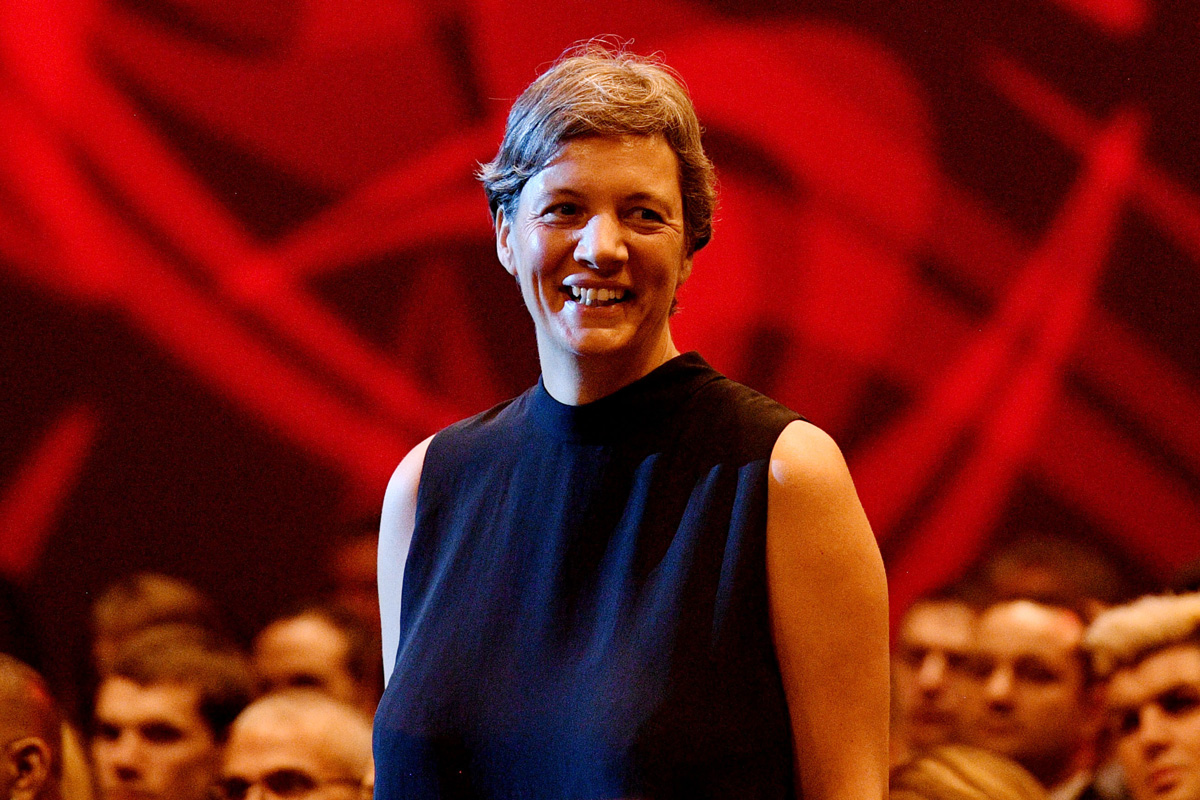Quantum Physicist Named 'Australian of the Year'

Get the world’s most fascinating discoveries delivered straight to your inbox.
You are now subscribed
Your newsletter sign-up was successful
Want to add more newsletters?

Delivered Daily
Daily Newsletter
Sign up for the latest discoveries, groundbreaking research and fascinating breakthroughs that impact you and the wider world direct to your inbox.

Once a week
Life's Little Mysteries
Feed your curiosity with an exclusive mystery every week, solved with science and delivered direct to your inbox before it's seen anywhere else.

Once a week
How It Works
Sign up to our free science & technology newsletter for your weekly fix of fascinating articles, quick quizzes, amazing images, and more

Delivered daily
Space.com Newsletter
Breaking space news, the latest updates on rocket launches, skywatching events and more!

Once a month
Watch This Space
Sign up to our monthly entertainment newsletter to keep up with all our coverage of the latest sci-fi and space movies, tv shows, games and books.

Once a week
Night Sky This Week
Discover this week's must-see night sky events, moon phases, and stunning astrophotos. Sign up for our skywatching newsletter and explore the universe with us!
Join the club
Get full access to premium articles, exclusive features and a growing list of member rewards.
Chalk one up for the physicists, as 2018's "Australian of the Year" title goes to a quantum physicist whose work contributed to the creation of the world's thinnest wire and the first transistor made from a single atom.
Michelle Yvonne Simmons, a professor of quantum physics in the Faculty of Science at the University of New South Wales, received the honor today (Jan. 25) from the National Australia Day Council (NADC) at an annual award ceremony in Canberra's Parliament House, Australian news agency SBS reported.
Simmons, who relocated to Australia from the U.K. in 1999, is at the forefront of research that is transforming how computers work, with the goal of building computers capable of tackling problems that currently require thousands of years of computing time to solve, and producing results in minutes, NADC representatives reported in a statement. [How Fast Can Quantum Computers Get?]
The awards, which date back to the 1960s, "honor an exceptional group of highly-respected Australians who ignite discussion and change on issues of national importance," according to the NADC website.
Three other Australians garnered recognition and titles at the event: "Young Australian of the Year" went to 24-year-old soccer player Samantha Kerr; "Australia's Local Hero" was awarded to mathematics teacher Eddie Woo; and the "Senior Australian of the Year" went to another scientist — biophysicist Graham Farquhar, a professor at Australian National University.
At the ceremony, Danielle Roche, chair of the NADC, praised the winners, calling the group "inspirational Australians" who "are breaking down barriers, forging new futures, looking at old problems in different ways and creating new pathways."
Contenders for the four titles are nominated by committees that represent each of Australia's 32 states and territories; every committee then submits the name of a single finalist, and the winners are announced at the award ceremony on Australia Day Eve — the day before the country's official national day, Australia Day — according to the statement.
Get the world’s most fascinating discoveries delivered straight to your inbox.
In her acceptance speech, Simmons noted that Australian scientists have "unique advantages" on the world stage, as they are able to form collaborative international partnerships but can also perform competitively, the Australian Broadcasting Corporation (ABC) reported.
"Our distaste for authority means we think for ourselves," Simmons said. "Best of all, we are prepared to give those hard challenges a go," she added.
Simmons also acknowledged the difficulties and discouragements that are often faced by women in the sciences, observing that women's abilities and talents are frequently underestimated, Simmons said in her speech.
"I think one of the important things — and the message I hope to get out there — is to defy those expectations," she said.
Original article on Live Science.

Mindy Weisberger is a science journalist and author of "Rise of the Zombie Bugs: The Surprising Science of Parasitic Mind-Control" (Hopkins Press). She formerly edited for Scholastic and was a channel editor and senior writer for Live Science. She has reported on general science, covering climate change, paleontology, biology and space. Mindy studied film at Columbia University; prior to LS, she produced, wrote and directed media for the American Museum of Natural History in NYC. Her videos about dinosaurs, astrophysics, biodiversity and evolution appear in museums and science centers worldwide, earning awards such as the CINE Golden Eagle and the Communicator Award of Excellence. Her writing has also appeared in Scientific American, The Washington Post, How It Works Magazine and CNN.
 Live Science Plus
Live Science Plus










